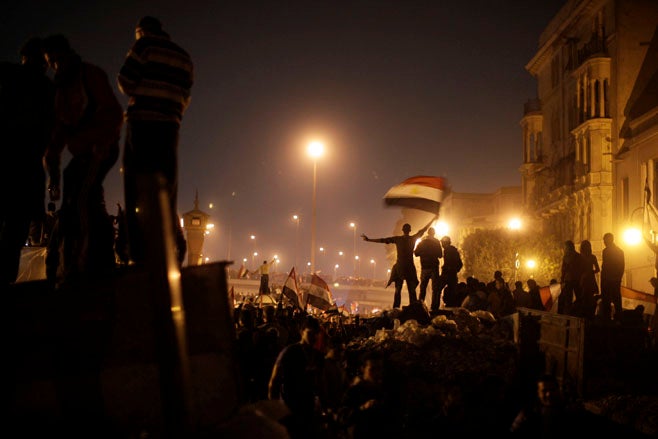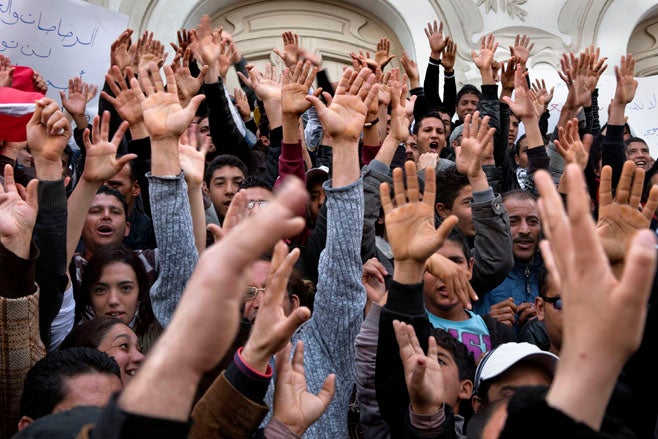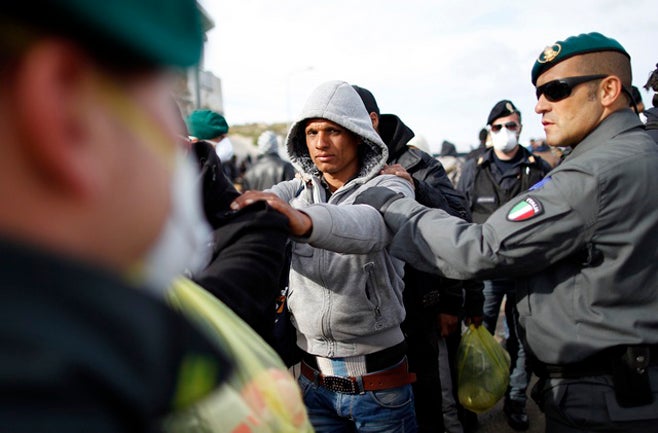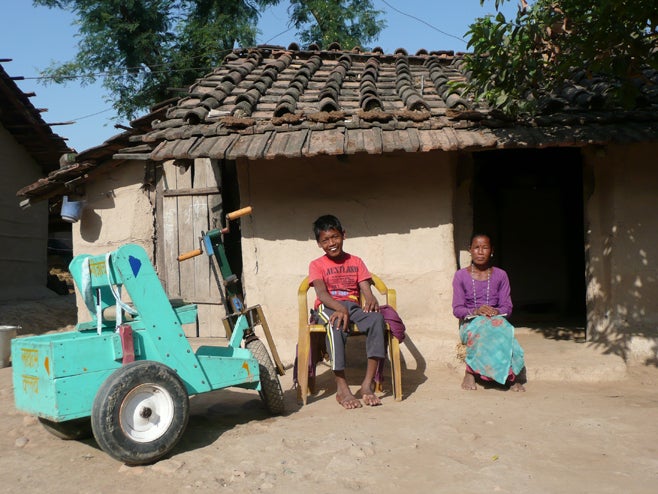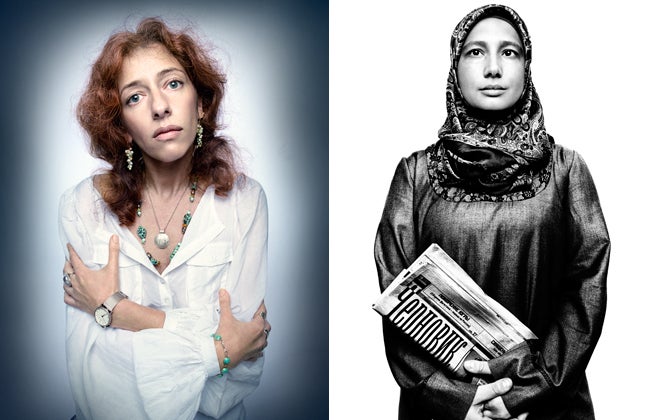Twenty years after the signing of the Paris Agreements in 1991, Cambodia’s human rights record remains poor. The government of the ruling Cambodian People's Party (CPP) continues to use the judiciary, penal code, and threats of arrest or legal action to restrict free speech, jail government critics, disperse peaceful protests by workers and farmers, and silence opposition party members. In 2011 it threatened one of the key accomplishments of the Paris Agreements—the spectacular growth of NGOs, community-based civic groups, informal associations, and grassroots networks—by proposing a law that would give it wide discretion to shut down associations and NGOs.
In 2011 the government failed to take meaningful steps to ensure that the judiciary was impartial and independent. The courts continued to operate as an arm of the CPP, symbolized by the chief justice of the Supreme Court, Dith Munthy, remaining a member of the party’s highest decision-making body. Allegations that Prime Minister Hun Sen was pressuring Khmer Rouge tribunal officials to drop cases dealt a further blow to the judiciary.
Opposition party leader Sam Rainsy remains in exile rather than face long prison sentences as a result of politically motivated and manifestly unfair trials. Noting that criticism of policy decisions is “one of the basic functions of leaders of opposition parties,” Surya Subedi, the United Nations special rapporteur on human rights in Cambodia, wrote that opposition leaders “should not be subjected to criminal proceedings for discharging their responsibilities in a peaceful manner.”
Freedom of Expression,Assembly, and Association
The Cambodian government in 2011 pressed forward with a vaguely worded draft law on associations and NGOs that would require NGOs to register and would enable the government to order the closure of organizations on arbitrary grounds. Civil society groups fear that the law will be used to intimidate groups and associations into silence. National and international NGOs mounted a campaign opposing the draft law and the UN and key donors such as the United States and European Union made their concerns known publicly and privately.
NGO fears were deepened on August 2 when the Ministry of Interior (MOI) sent a letter to local NGO Sahmakum Teang Tnaut (STT) suspending its activities for five months without specifying the legal grounds for the action. On August 13 the MOI publicly accused STT of “incitement” of persons to oppose development projects. Authorities issued formal warning letters to two other groups, Bridges Across Borders Cambodia (BABC) and NGO Forum on Cambodia, and threatened a fourth group, the Housing Rights Task Force.
The government increasingly is using criminal defamation and incitement laws to intimidate critics. NGOs identified at least 12 persons imprisoned under such laws for peaceful expression of views since December 2010. They include Seng Kunnakar, UN World Food Program employee; Sam Chankea, provincial field coordinator ofCambodian Human Rights and Development Association (ADHOC); Leang Sokchouen, staff member from Licadho; and Hang Chakra, editor of the Khmer Machas Srok newspaper.
The government continues to use a 2009 law on demonstrations to deny protest requests or compel smaller protests to use remotely placed, so-called freedom parks for rallies. Many people have staged protests regardless, particularly over land. In March the government denied permission for a public rally organized by the Cambodian Women’s Movement Organization and women workers in central Phnom Penh to celebrate the 100th anniversary of international women’s day, even though the minister of women’s affairs was scheduled to speak.
The government also continues to push for a trade union law that would significantly weaken union rights by amending registration, collective bargaining, and strike provisions. The draft provisions violate international labor rights standards. Authorities have prevented at least three public showings in Phnom Penh of a documentary about the 2004 assassination of labor leader Chea Vichea. There has been no progress in his case or that of two other union leaders killed in 2004.
Torture and Arbitrary Detention
Police and the military police routinely use torture to extract confessions that are used to obtain convictions. Cambodia's prisons continue to be overcrowded and lack sufficient food, water, sanitation, and healthcare. A survey by Licadho found that prisons are “bursting at the seams,” with reported occupancy at 179 percent in April 2011. Campaigners have demanded reforms to limit widespread useof pre-trialdetention and step up implementation ofparole procedures and non-custodial sentences.
Reportedly, Cambodianauthorities are arbitrarily detaining more than 2,000 people—including the homeless; street children, some as young as 13; and people with mental disabilities—in 11 government drug detention centers created to “treat” and "rehabilitate" drug users. Detainees in such centers are subjected to torture; violence, including electric shocks and whippings; forced labor; and military-style drills. Vietnam continued to strongly influence Cambodian drug treatment policies.
Women and girls—including transgender women—involved in sex work face beatings, rape, sexual harassment, extortion, arbitrary arrest, and detention by police and government-hired security guards. A 2008 law on trafficking and sexual exploitation that criminalizes trafficking also makes "solicitation" illegal, which has exposed sex workers to arbitrary detention and abuse. Homeless children, families, beggars, people with mental disabilities, and other indigent people gathered in police sweeps have been detained and mistreated in government social affairs centers.
Land Confiscation and Forced Evictions
Illegal land confiscation and forced evictions by government officials and security forces on behalf of powerful companies and individuals remains a pressing issue. Land rights activists face violence and arrest, with more than 60 people imprisoned or awaiting trial at this writing, for protesting forced evictions and land grabbing.
In August more than 100 protesters from the Prey Lang forest reserve were arrested in Phnom Penh, the capital, while distributing pamphlets advocating preservation of the forest. Ten people were injured in June in Kompong Speu when a prosecutor led over 100 soldiers and police to forcibly take control of disputed land awarded by courts to a Taiwanese company.
Since 2007 Phnom Penh municipal authorities, supported by military and police, have sought to evict the approximately 4,200 families living in the Boeung Kak Lake area.The land was transferred by the government in a 99-year lease to a joint venture between a Chinese company and Shukaku, a Cambodian company owned by Lao Meng Kim, a senator and senior CPP member. Intimidation and violence by security forces have forced many families to accept paltry compensation packages and resettle in remote sites on the city outskirts.
Khmer Rouge Tribunal
Prime Minister Hun Sen has continued to undermine the independence of the Extraordinary Chambers of the Courts of Cambodia (ECCC), demanding that the court not pursue cases 003 and 004 against five suspects submitted for indictment by the international co-prosecutor. In April You Bunleng and Siegfried Blunk, the co-investigating judges, closed their investigation into case 003 without having appeared to give the cases the rigorous scrutiny warranted. The international co-prosecutor Andrew Cayley challenged this decision in early May; a month later the co-prosecuting judges refused his request and threatened him with contempt of court on specious grounds of violating judicial confidentiality. The co-investigating judges also significantly narrowed their definition of “victim,” thereby largely shutting down civil party applications to present evidence in those cases. In October Human Rights Watch called for the co-investigating judges to resign for failing to perform their judicial duties. One week later Blunk resigned, citing government interference in the court.
Refugees and Asylum Seekers
Asylum seekers, especially from Vietnam and China, remain at risk of forced repatriation in violation of the Refugee Convention. On February 15 the government ordered closed the refugee center in Phnom Penh sheltering Montagnard refugees from Vietnam. Despite international urging, the government did not amend its sub-decree on determining refugee status, which fails to incorporate the Refugee Convention’s definition of refugee and otherwise to fulfill Cambodia’s obligations as a party to that convention.
Cambodian authorities still do not grant asylum to Khmer Krom—ethnic Khmer from southern Vietnam—who fled Vietnam. Despite promises to treat them as Cambodian citizens, authorities have failed to grant many of them citizenship or residence rights.
Migrant Domestic Workers
Since 2008, 40,000 to 50,000 Cambodian women and girls have been recruited as migrant domestic workers in Malaysia. Recruitment agents often forge fraudulent identity documents for children, offer cash and food incentives as “loans” that leave migrants deeply indebted, confine recruits in training centers in Cambodia for months, and intimidate those who try to escape. Many recruitment centers have inadequate food, water, and access to medical care. In 2011 three women recruits died while confined in the centers; authorities failed to undertake thorough investigations into their deaths or hold anyone accountable.
A revised labor regulation in August fell far short of guaranteeing minimum rights protections for Cambodian migrants going abroad. Drafted with little consultation with migrants or civil society organizations, the regulation fails to tackle forced confinement, debt bondage, and child recruitment. Cambodian embassy officials in Kuala Lumpur and recruitment agencies frequently fail to protect workers fleeing abuses and in some cases have returned workers to abusive employers. In October Cambodia announced a ban on sending domestic workers to Malaysia.
Key International Actors
Cambodia's donors pledged US$2.8billion in development aid for the 2009 to 2012 period. From 1998-2008, donors annually contributed approximately $600 million a year. Foreign assistance accounts for over 50percent of Cambodia’s budget, yet donors have said little about Cambodia’s worsening human rights environment.
A notable exception was a strong donor response to the draft NGO law, which at this writing had still not been enacted.
The World Bank suspended provision of new loans after the Cambodian government failed to address critical problems in a World Bank-supported land titling program. The bank had for many years raised concerns about high-level corruption but had rarely taken action.
Japan, Cambodia's largest donor, said little about human rights, the draft NGO law, or the Khmer Rouge tribunal debacle. China, another major investor and donor, continued to increase aid to Cambodia without conditions, undermining efforts by others to address human rights concerns.
